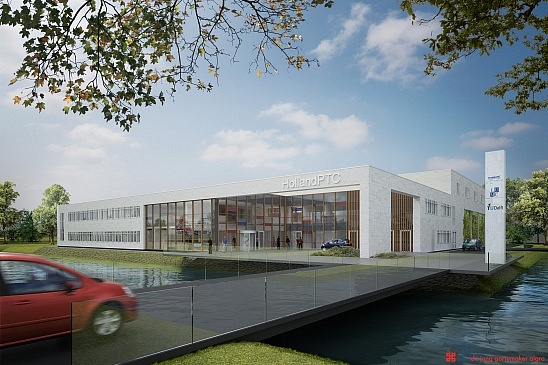Work on building the Holland Particle Therapy Centre (HollandPTC)is due to start in May. This announcement was made on the afternoon of Wednesday 25 February by the initiators TU Delft, Erasmus Medical Centre and Leiden University Medical Center.
The centre for proton therapy, which will be built next to the Reactor Institute Delft, is expected to open its doors in 2017.
Although proton therapy is available in several other countries, including the United States, Switzerland, Germany and Japan, the Netherlands is still unable to offer it as a treatment for cancer.
The main advantage of proton therapy over current treatments is that it can target the tumour much more accurately. It also causes much less damage to the surrounding tissue. Targeted radiation is very important when treating certain types of cancer, such as around the eye, the head/neck area, the brain and possibly also the pancreas.
The technique appears to be very promising. In addition to HollandPTC, yesterday evening the Executive Board of the UMCG (University Medical Center Groningen) also announced its intention to build a proton clinic. Plans for similar clinics in Maastricht and Amsterdam are also underway.
Minister of Health, Edith Schippers, issued permits to all four groups in 2013, when she decided that basic healthcare insurance should be extended to cover the treatment for 2,200 Dutch patients per year. Six hundred of them will be treated at HollandPTC.
But the treatment centres are not being welcomed universally. Healthcare insurers think that it is too soon to build expensive clinics (the total bill will come to €350 million) for a therapy that they do not consider sufficiently proven. To their mind, one clinic in the Netherlands is enough and they only plan to sign a contract with one of the four, to be decided at a later date.
Ben Crul, medical advisor at Zilveren Kruis Achmea, gave the following statement in De Volkskrant newspaper: “We are concerned that public money is being invested in facilities that may prove to fall short of the mark in another ten years. […] Medical developments currently in the pipeline could well dispense with the need for proton therapy in many cases.”
The President of the Executive Board of TU Delft, Dirk Jan van den Berg, takes a different view: “There is no doubt about the fundamental advantage of proton therapy, but there is still so much potential for further innovation. Not just clinically, but also technologically, an area in which we excel.”
HollandPTC is a strategic priority area within the Medical Delta, the medical-technological collaboration between the universities and university medical centres in Leiden, Delft and Rotterdam.
(Images: De Jong Gortemaker Algra)



Comments are closed.